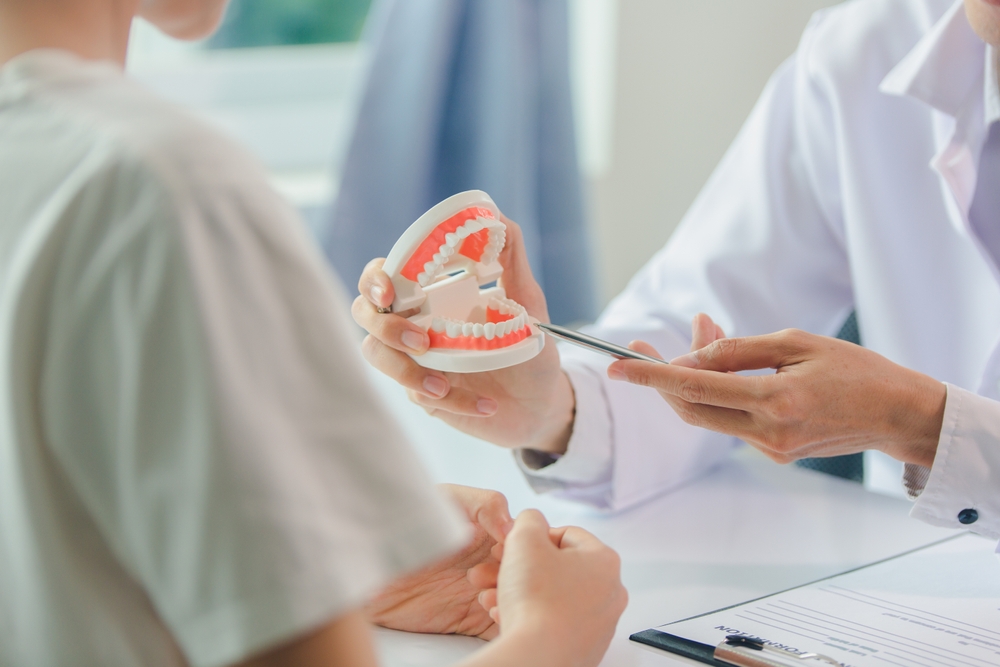Dental implants are a popular and effective solution for replacing missing teeth. Not only do they provide a natural look and feel, but they also restore function, allowing patients to eat, speak, and smile with confidence. However, just like natural teeth, dental implants require proper care to ensure longevity and maintain oral health. Here’s everything you need to know about caring for your dental implant.
1. Maintain Excellent Oral Hygiene
Good oral hygiene is crucial for the health of your dental implant. While implants themselves cannot decay, the surrounding gums and bone structure can still suffer from conditions like gum disease. To keep your implant and surrounding tissues healthy:
- Brush regularly: Brush your teeth at least twice a day with a soft-bristled toothbrush. Pay special attention to the gumline around the implant. Using a non-abrasive toothpaste can help avoid damage to the implant.
- Floss daily: Flossing around your implant helps remove plaque and food particles that brushing might miss. Consider using a special floss threader or interdental brush for easier access around the implant.
- Use mouthwash: An antimicrobial mouthwash can help reduce plaque buildup and prevent infection around the implant site.

2. Avoid Hard and Sticky Foods
Although dental implants are durable, they are not invincible. To ensure your implant remains in optimal condition, avoid chewing on hard objects such as ice, pens, or hard candy. Additionally, sticky foods like chewing gum or caramel can get stuck around the implant, increasing the risk of plaque buildup and potential damage.
3. Regular Dental Check-ups
It’s important to visit your dentist regularly for check-ups, even after your dental implant procedure. Routine visits help ensure your implant is functioning properly, and your dentist can monitor the health of your gums and bone structure. Your dentist will also clean around the dental implants in Sidcup to remove any plaque or tartar that might have accumulated.
4. Stop Smoking
Smoking can significantly affect the success of a dental implant. Nicotine restricts blood flow to the gums, which can hinder healing and increase the risk of infection around the implant. If you smoke, it’s highly recommended to quit or, at the very least, reduce smoking to promote better healing and long-term implant health. We are also offering all on 4 dental implants in Eltham.
5. Avoid Teeth Grinding
If you suffer from bruxism (teeth grinding), it can cause excessive pressure on your implant, leading to potential complications such as implant loosening or failure. Speak with your dentist about a custom nightguard to protect both your natural teeth and dental implants during sleep.

6. Watch for Signs of Infection
Though rare, infections can occur around dental implants. Keep an eye out for any signs of infection, including:
- Red or swollen gums
- Pain or discomfort around the implant
- Discharge of pus or a bad taste in the mouth
- Increased sensitivity or movement of the implant
If you experience any of these symptoms, contact your dentist immediately for an evaluation and treatment.
7. Protect Your Implant During Physical Activities
If you engage in physical activities like sports, it’s a good idea to wear a mouth guard to protect your dental implant. A mouth guard in eltham can prevent damage from accidental falls, blows, or collisions.
8. Monitor Your Implant’s Condition
It’s important to stay aware of any changes in your implant. If you notice any unusual movement, discomfort, or a change in how the implant fits with your natural bite, schedule an appointment with your dentist. Early intervention can prevent complications and prolong the life of your implant.
Conclusion
Dental implants in Eltham are a lasting and life-changing solution for missing teeth, but they do require some care to ensure their long-term success. By maintaining good oral hygiene, avoiding harmful habits, attending regular dental check-ups, and taking proper precautions, you can enjoy your implant for many years to come.

